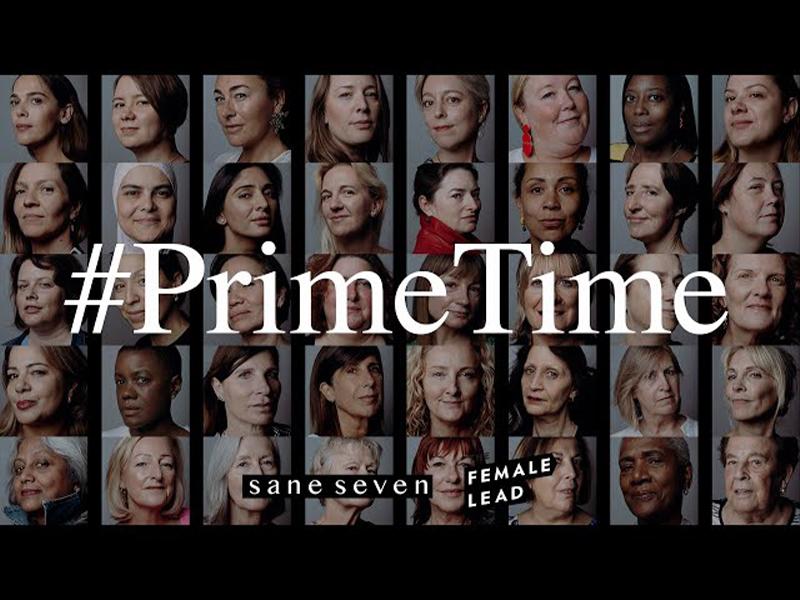Nick Corrigan, Managing Director and Head of Leveraged Finance UK and Northern Europe at Societe Generale, believes financial institutions risk losing the ‘talent war’ and competitive relevance if the City fails to address the issue of gender imbalance.
Nick recently spoke to WeAreTheCity to share his views on working in The City, its realities, and its perceptions, his support for gender equality in the workplace and the need for change, and how new ways of working can attract a deeper talent pool to The City.
Nick, you’re a strong advocate of gender equality. What is your motivation?
First, I want to emphasise that I am a strong advocate of diversity in all its forms, regardless of gender, ethnicity or sexual orientation. In my view, a diverse environment benefits human relationships on a personal level and significantly improves institutional performance by bringing different perspectives to the debate and accessing 100% of the market’s intellectual capital.
If I can make the parallel with the ‘day job’, some of the strongest and most successful businesses we’ve supported have been significantly diversified by geography, product, supplier and customer. Concentration in one area creates risk and misses the opportunities for growth provided by access to a broader array of markets. I see the same benefit in a diverse workforce – access to all intellectual capital, offering a better probability of locating the best solution to any given challenge.
As Co-Head of the UK Gender Network at Societe Generale, my focus is on gender equality. I sincerely believe that greater gender diversity at senior levels offers significant performance benefits across The City, not just for today but for generations to come.
How do you see the pace of change?
I graduated from university around 25 years ago thinking that my generation would be the one to break down the barriers around gender, sexual orientation, ethnicity and prejudice in all its form, but as I look around The City today, I can see that those ambitions have yet to be achieved.
We have to recognise however that progress is being made on gender imbalance, helped in large part by the Women in Finance Charter and the Gender Pay Gap reporting, but also through proactive institutional change. However, we must all also recognise that progress is far too slow, evidenced by how few women there are in senior managerial positions across our industry.
If I look at my team over many years, we have had a number of hiring opportunities. We typically receive a short list of around 50-60 CVs, but we only see around 10% from women, and I am sure this is symptomatic of the industry.
At a grass roots level, not enough women are applying for roles in The City, and we need to address the core reasons behind this. We need to collectively work together as a sector to help change our culture and provide an environment where we can attract more female talent, but also better align the perceptions of our industry with the much improved realities.
On culture and perceptions, can you elaborate?
The City can still be seen as an unsociable, male dominated place with long working hours and a testosterone fuelled environment, which could deter some women from applying for jobs in the industry. If this is your perception, it is no wonder that few women wish to apply for roles and many do not wish to remain.
The reality is that the industry today is different in many ways, even compared to just a decade ago. Regulatory and cultural change have been two big drivers, but also technology, as this is shifting the way we work with much greater flexibility available between the office and home-working.
High level managers across our industry should be more vocal about the realities of the role, but also highlight a willingness to be more flexible when it comes to the humanity of the environment.
So, is it an issue of attracting women to The City or retaining women in The City?
It’s a combination of the two but the critical challenge is retention. We need to address the root cause of departures so that we can have more women at Managing Director levels across The City. To my earlier points, there is a core commercial imperative to this and therefore the issue should sit at the very centre of global business strategies, and not just an after-thought.
In order to attract and retain more women in the City, we need to create an environment where we see more senior female role models alongside senior ‘sponsors’ that actively and visibly support female colleagues across any given organisation. Such role models acutely demonstrate the possibilities and provide the right environment for women to confidently request a deserved promotion, even if they feel they do not yet possess all the required skills for the next level. We need to send the message that the next step up the ladder will involve things you don’t already know and that’s perfectly acceptable. Having strong support and sponsors within senior management will undoubtedly help. By definition, a change of role will bring new areas of intellectual challenge yet to be mastered, but also new perspectives. It’s a question of encouraging, not discouraging, and we all have a role to play in this regard, men and women alike, and especially those in senior positions.
So, what’s the key to bringing about more flexibility to a role in your view?
To my mind, successful institutions are results driven, not process led. By that I mean we are all working together to achieve a common goal, how we go about achieving this goal is less important than the goal itself. We see a perfect example of the point today given Covid-19. I’m sure many institutions are experiencing a wholesale shift in working conditions and some significant productivity improvements. As an industry, we are proving that ‘working from home’ is not detrimental to output, quite the opposite in many ways.
Imagine all the aggregate time taken by the City workforce commuting to their respective offices, all the time taken flying to meetings that could equally be conducted by video call. If you take a small fraction of this ‘dead time’ and convert it into productivity, the gains are enormous. I’m not saying that human interface is not deeply important to business, there is no question that a face-to-face meeting is more powerful than a video call, but getting the optimal balance around flexible working will attract the very best talent and deliver enormous productivity improvements simultaneously. Both men and women alike are looking for institutions to realise this.
On occasion, Nick is asked to speak at Network events or internal management committees. “I start by saying that I’ll randomly choose one person in the room to answer a highly technical strategic question about the institution. If they answer correctly, they will receive a highly valuable prize (people start listening), if they answer incorrectly, they receive nothing. Then I give them the good news ; they can choose three other people in the room to help them with the answer, or, they can choose three people from half the room to help them with the answer. What would they prefer ?
Sooner or later, it hits home that access to only 50% of the intellectual capital in ‘the market’ significantly diminishes the chances of getting the right answers in relation to those big strategic decisions that may determine the difference between ordinary and extraordinary institutional performance”.
The UK Gender Network
Societe Generale in the UK has a Women’s Network, co-headed by Veronique Sabbah, Susana Santos Prieto and Nick with the principal aim of creating greater gender diversity throughout the bank. The Network has the strong support of the UK CEO and Chief Country Officer and UK Executive Committee.
 Nick has worked at Societe Generale for over 17 years. Outside his principal Leveraged Finance role, he Co-Heads the ‘UK Gender Network’ and is also a mental health first aider, highlighting his passion for much greater diversity within a supportive and healthy workplace environment. He holds an undergraduate degree in Mathematics and a Masters in Social & Occupational Psychology from the LSE, which he says helps provide the balance between the technical and managerial aspects of his role.
Nick has worked at Societe Generale for over 17 years. Outside his principal Leveraged Finance role, he Co-Heads the ‘UK Gender Network’ and is also a mental health first aider, highlighting his passion for much greater diversity within a supportive and healthy workplace environment. He holds an undergraduate degree in Mathematics and a Masters in Social & Occupational Psychology from the LSE, which he says helps provide the balance between the technical and managerial aspects of his role.
The Societe Generale group has close to 150,000 employees globally, comprised of 136 different nationalities. 44% of managers are women and 25% of the Group’s Management Committee are women also.









